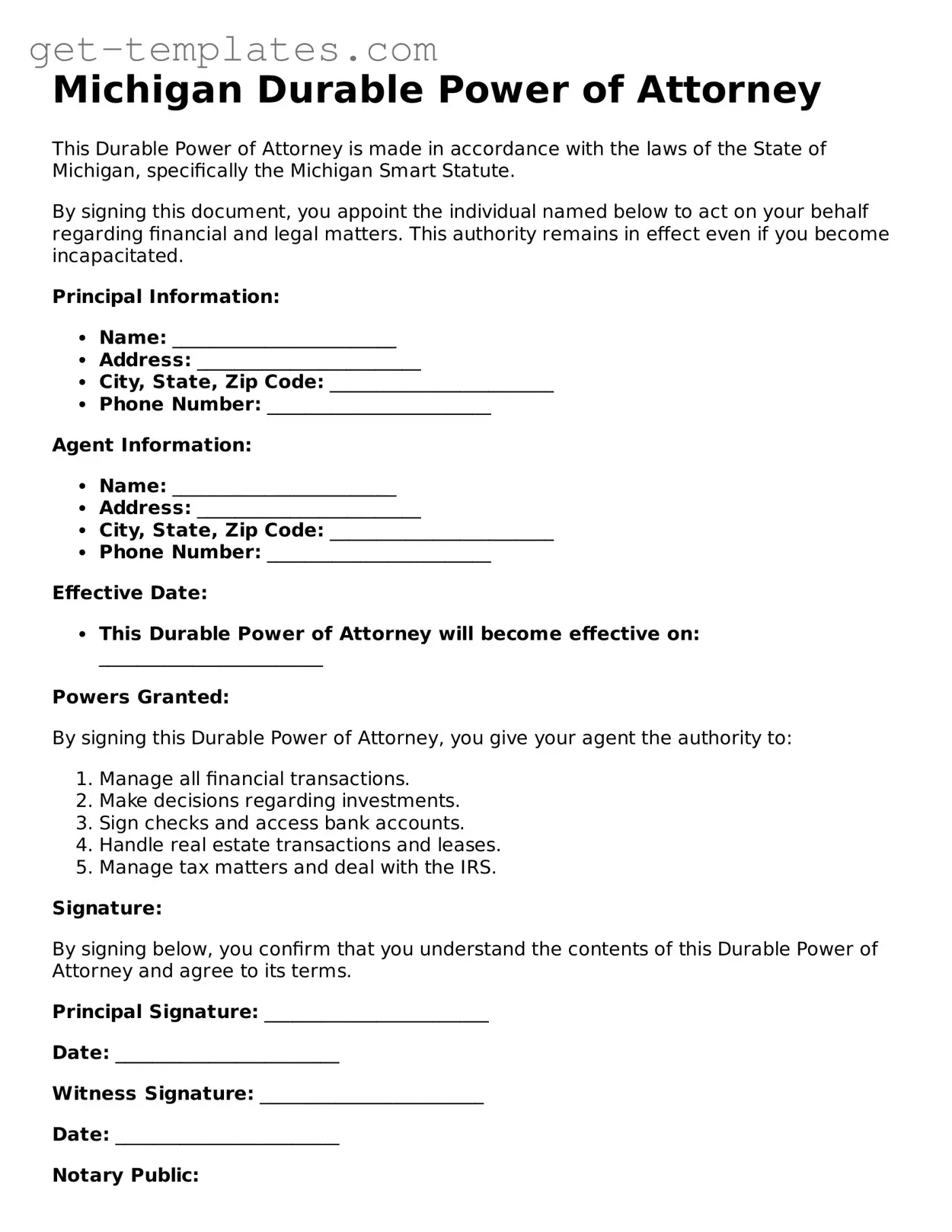Attorney-Approved Durable Power of Attorney Document for Michigan
A Michigan Durable Power of Attorney form is a legal document that allows an individual to appoint someone else to make decisions on their behalf when they are unable to do so. This form remains effective even if the person becomes incapacitated, ensuring that their financial and medical matters are managed according to their wishes. Understanding how this document works is crucial for anyone looking to secure their interests and ensure their preferences are honored.
Get Document Online

Attorney-Approved Durable Power of Attorney Document for Michigan
Get Document Online
You’re halfway through — finish the form
Finish Durable Power of Attorney online — edit, save, download made easy.
Get Document Online
or
⇓ PDF Form
